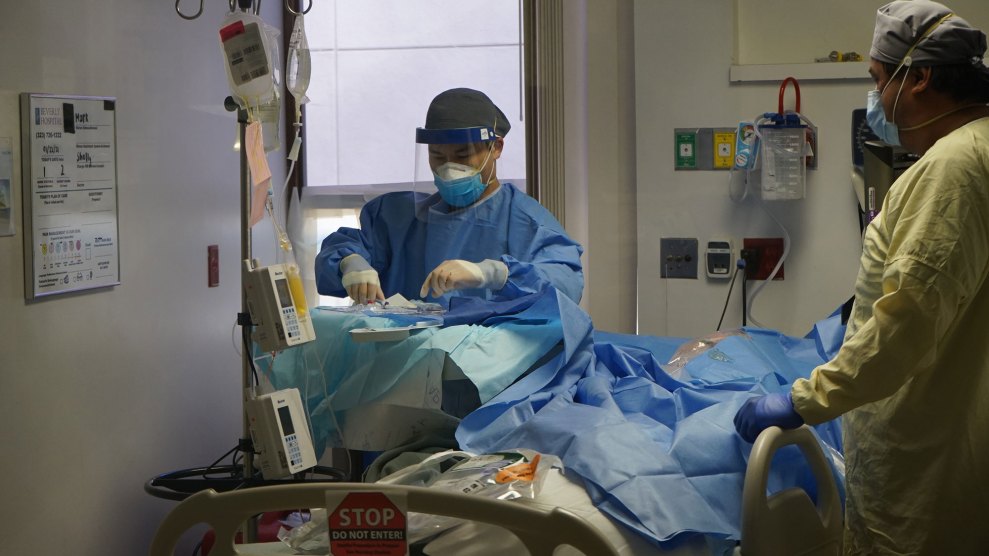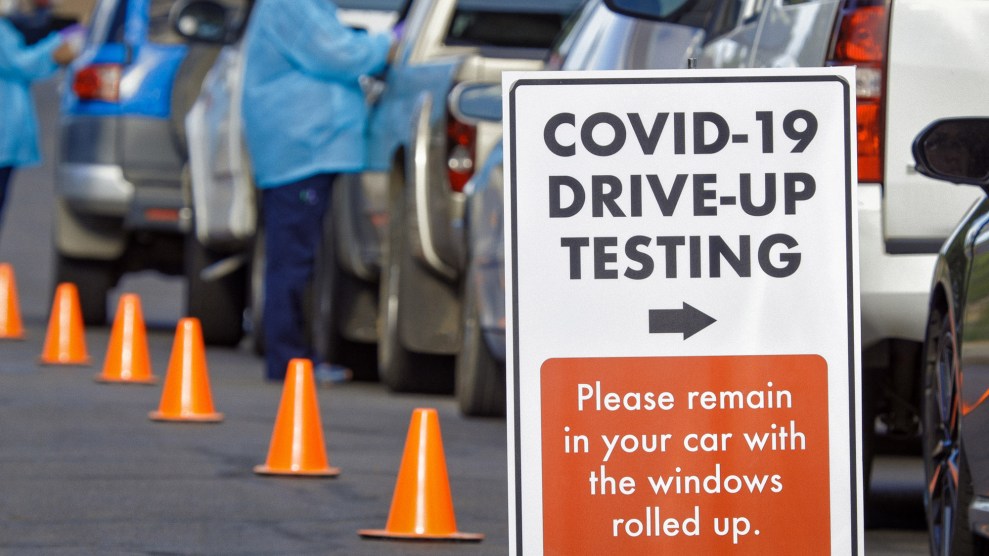
Health care workers operate in an ICU in the "COVID Area" of the Beverly Hospital in Montebello, California.Xinhua/Zeng Hui via Getty Images
Today marks the one-year anniversary of the World Health Organization declaring “a public health emergency of international concern over the outbreak of novel coronavirus.” Since then the virus has killed more than 2.2 million people worldwide.
At the time WHO Director General Dr. Tedros Adhanom Ghebreyesus made the declaration, there were fewer than 100 cases in the world, and this week we passed 102 million reported cases. More positive cases have been reported in the past two weeks than during the first six months of the pandemic, Tedros said at a press conference Friday.
“A year ago, I said the world had a window of opportunity to prevent widespread transmission of this new virus,” Tedros said. “Some countries heeded that call; some did not.”
The United States is one of the countries that squandered that opportunity under the leadership of a president who denied the severity of the virus, refused to wear a masks or to advise the public to do so, put the economy ahead of public safety, and kept key information from the American public about how the disease spreads.
For much of the last year, the United States has had some of the worst rates of infection in the world. As of Saturday, there have been 25.9 million COVID-19 cases confirmed in the United States, and more than 436,000 people have died, according to data from John Hopkins University.
President Joe Biden has made the pandemic a top priority for his administration since taking office Jan. 20, signing executive orders that mandate mask-wearing for travel, streamline vaccine distribution, and prioritize those hardest hit by the virus. These are all crucial mitigation measures, but for millions of families—Black and Brown people disproportionately among them—it’s already too late.
“The pandemic has exposed and exploited the inequalities of our world,” Tedros said. “There is now the real danger that the very tools that could help to end the pandemic—vaccines—may exacerbate those same inequalities.”
Vaccines are giving us another window of opportunity to bring the pandemic under control, so “we must not squander it,” he said. “The world has come to a critical turning point in the pandemic and also a critical turning point in history.”













